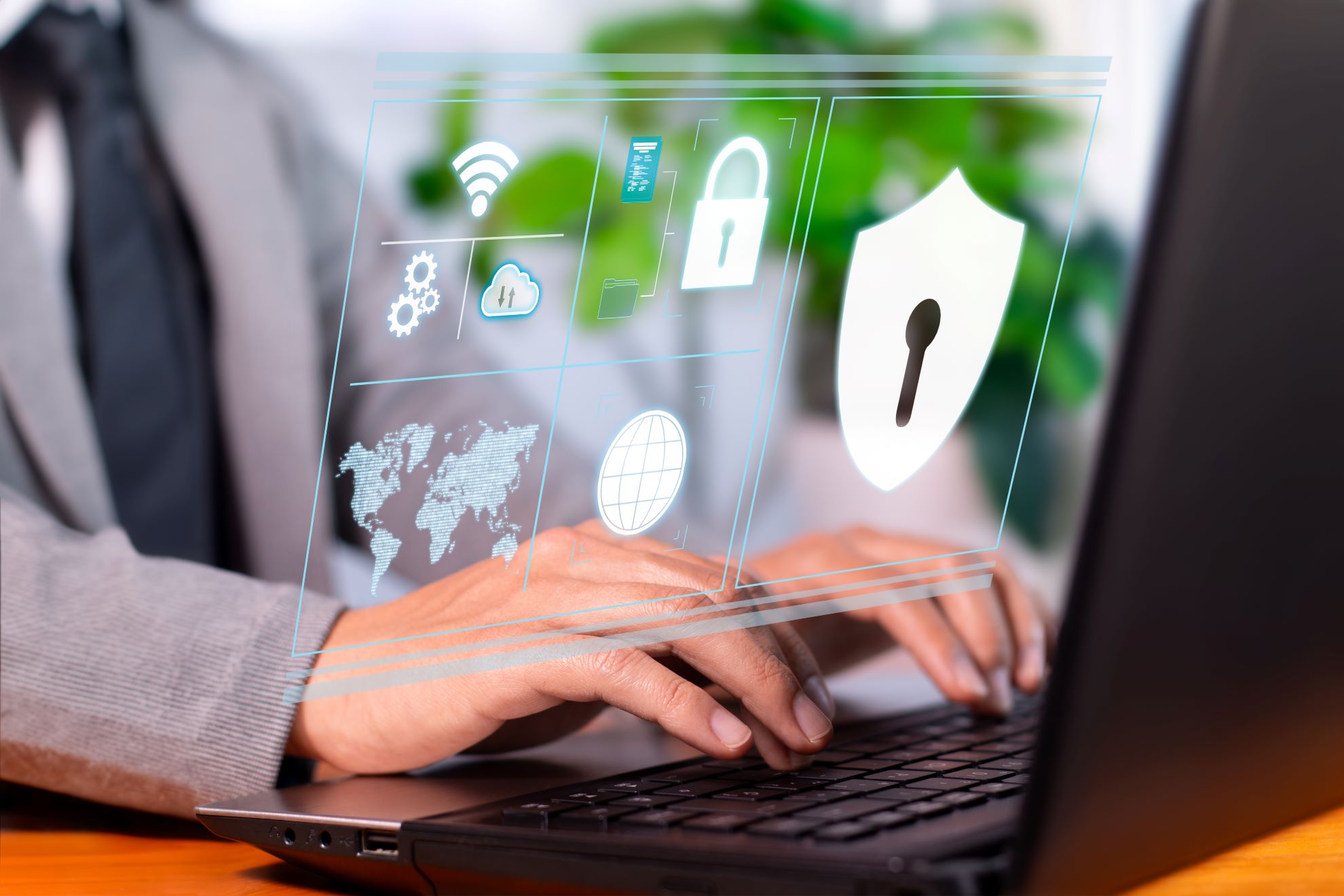The digital era has transformed how organisations operate, with remote work becoming an increasingly prevalent component of today’s business landscape. While the shift toward remote work offers numerous benefits, it also introduces new risks and challenges, particularly regarding information security. As cyber threats become more sophisticated, organisations must ensure the protection of sensitive data across remote workforces. One essential tool to achieve this is by implementing the ISO 27001 Information Security Management System (ISMS) standard.
ISO 27001 is an internationally recognised standard that offers a holistic approach to managing information security risks in today’s challenging cyber landscape. Integrating its principles into your remote work policies and practices can mitigate potential security risks, safeguard vital data, and ensure your organisation remains compliant with regulatory requirements.
In this article, we will explore how ISO 27001 can support the security of your remote workforce, discussing its core principles, the benefits of its implementation, and the steps organisations can take to achieve and maintain compliance. Join us as we delve into the world of ISO 27001, shedding light on its crucial role in enabling secure remote work practices that protect your data and empower your remote employees to contribute safely and effectively to your organisation’s objectives.
1. Core Principles of ISO 27001: Building a Secure Remote Work Environment
To create a secure remote work ecosystem, organisations must implement the foundational principles of ISO 27001:
- Risk Assessment: Systematically identify and evaluate potential risks to your organisation’s information assets, factoring in the unique challenges of remote work, such as unsecured home networks and personal devices.
- Risk Treatment: Develop strategies to mitigate risks, prioritising those that pose the most severe threats to your organisation’s data security and regulatory compliance.
- Continual Improvement: Regularly review and revise your ISMS to adapt to the ever-evolving cyber landscape and ensure the ongoing security of your remote workforce.
- Compliance with Legal and Regulatory Requirements: Ensure your remote work procedures comply with prevalent privacy and data protection laws, such as the General Data Protection Regulation (GDPR) and the Australian Privacy Act.
2. Benefits of Implementing ISO 27001 for Remote Workforces
ISO 27001 compliance offers a myriad of advantages for organisations navigating the complexities of securing remote workforces:
- Robust Data Security: Employing ISO 27001 principles provides a robust framework for safeguarding sensitive data across remote teams, mitigating the potential for data breaches or unauthorised access.
- Regulatory Compliance: By adhering to ISO 27001 standards, organisations can satisfy legal and regulatory obligations, reducing the likelihood of fines or reputational damage.
- Enhanced Remote Work Policies: ISO 27001 helps bolster existing remote work policies, ensuring they are comprehensive, effective, and up-to-date with current best practices.
- Increased Stakeholder Confidence: Demonstrating commitment to information security through ISO 27001 compliance instils confidence in your suppliers, customers, and employees, fostering trust and solidifying relationships.
3. Steps to Achieve and Maintain ISO 27001 Compliance for Remote Workforces
Organisations looking to implement ISO 27001 for remote workforce security should consider the following steps:
- Assign Leadership: Designate a responsible individual or team to lead your organisation’s ISO 27001 implementation efforts, ensuring accountability and prioritisation.
- Assess Existing Policies: Review your current remote work policies and procedures to identify any gaps or weaknesses that may need addressing to achieve compliance.
- Secure Technical Infrastructure: Ensure your remote employees are equipped with secure devices and networks, utilising encryption, multi-factor authentication, and regular software updates.
- Provide Security Training: Equip your remote workforce with the knowledge and skills necessary to identify and mitigate potential threats, such as phishing, social engineering, and unsecured Wi-Fi connections.
- Implement Access Controls: Establish data access levels, only granting permissions to those who require access to specific data types, reducing the potential for unauthorised access or accidental data leaks.
- Review and Monitor: Regularly review and revise your ISMS, assessing its effectiveness against emerging threats and ensuring continuous improvement.
4. Opportunities for Remote Employees: Empowering Productivity and Security
Organisations can empower their remote workforce while maintaining the highest level of information security when implementing ISO 27001 practices:
- Flexible Working Arrangements: Remote work policies comply with ISO 27001, which allows employees the flexibility to balance work and personal obligations while still operating securely.
- Secure Collaborative Tools: Employing secure communication and collaboration platforms enables remote teams to work together effectively in real time, fostering productivity and teamwork without sacrificing security.
- Employee Training: Security awareness training equips employees with the necessary knowledge to navigate the complex cyber landscape, empowering them to take an active role in safeguarding your organisation’s data.
Ensuring Remote Workforce Security with ISO 27001
In a digital era marked by evolving cyber threats and a shift towards remote work, organisations must remain vigilant in safeguarding sensitive information and maintaining regulatory compliance. Implementing the principles of ISO 27001 provides a solid foundation for securing remote workforces, ensuring a holistic approach to information security that mitigates risk, fosters continuous improvement, and upholds legal and regulatory requirements.
As remote work becomes increasingly common, ISO 27001 compliance offers a comprehensive framework for organisations looking to navigate the challenges of our digital age, enabling safe, secure, and productive remote work environments. Let us at ISO 9001 Consultants guide you through the process of achieving and maintaining ISO 27001 compliance, ensuring the security and resilience of your remote workforce and the ongoing success of your organisation.








Users Comments
Get a
Quote